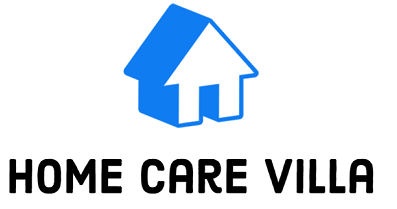A landscaping project entails planning the yard’s design or theme, plant selection, weed and pest removal, etc. Usually, homeowners enlist the help of professional landscapers and gardeners to beautify their lawns and care for their greenery. However, another important aspect of landscaping is waste management and removal, and it’s equally essential to plan for it before getting started with any home improvement projects.
Once you clear the yard of weed, dried leaves, branches, and other green waste, the homeowner needs to remove all the garbage and dispose of it properly. Massive amounts of waste will often be left on the property once landscaping is done, posing health and safety risks to your family if not safely disposed of and collected. Green waste can decompose and harbor bacteria, thereby attracting rodents and insects and emitting foul odors that can spread in the household.
Because holding on to garden waste for too long may be inconvenient, unsanitary, and hazardous to health, property owners need to dispose of it as soon as possible. If you’d like to know how you can deal with garden waste after a landscaping project, you’re in the right place. This article will provide some tips you can consider and these are as follows:
Hire Professional Waste Removal Services
Suppose you want a safe, reliable, and convenient trash disposal solution to help you complete your landscaping project. In that case, you can consider hiring professional waste removal services. Such companies offer trash removal services to homeowners and commercial places alike, as they specialize in moving vast amounts of waste for safe disposal. They will collect the trash from your doorstep based on the schedule you’ll provide to them, and they’ll take all kinds of waste materials you need to get rid of at reasonable prices.
To know more about these companies, you may visit their homepage and other similar sites to explore the various services they offer, including their rates.
Rent A Dumpster
Renting a portable dumpster can be helpful if you lack space and temporary storage where you can pile garden waste as the landscaping project progresses. Many dumpster rental companies offer customers rental packages where the container is dropped off at the property and collected after a few days depending on the client’s need. Costs may also vary based on the size of the dumpster, the duration of the rental, and the collection services included.
Dispose Of Waste Through Public Trash Collection Services

Depending on trash disposal regulations in your locality, you can also remove garden waste from your landscaping project through public garbage collection services. For added convenience and safety, you may need to check if there are items that can’t be collected or need to be segregated from other materials. Some garbage collection regulations in certain areas may have restrictions when accepting garden waste from residential properties, so it’s vital to follow their guidelines to dispose of your garbage without hassle.
Make Compost At Home
If you want to minimize the waste you’re going to dispose of after a landscaping project, consider making compost out of biodegradable items such as dried leaves and decaying plants. Compost is made by letting biodegradable waste, such as food, plants, paper, and wood, decompose inside a container. After several weeks or months of decomposition, you can now use the decayed materials to enrich the soil for planting.
Composting is ideal for those with a spare area for holding a small container or bin that will serve as storage for compost. You can put some of the green waste and other materials inside the bin, such as fruit and vegetable peels, paper, and other biodegradable items. Then, you’ll need to wait for the waste to decompose before using it to enrich your garden soil.
However, note that not all biodegradable wastes from landscaping can be combined directly with your compost. For instance, before adding to the compost bin, large branches and sticks may need to be chipped into small, thin pieces. The wood can decompose faster this way and won’t take up too much space in your container.
also read; how to till garden without tiller
Conclusion
The vast amounts of trash piled in your backyard may seem challenging to manage after your landscaping project completion. It’s not an impossible task, though, and you can handle your trash effectively with enough planning and thorough preparation. You can prepare beforehand by allocating spaces for trash collection, segregating materials, and arranging proper waste disposal. As you’ll be handling large amounts of garden waste, you may need to enlist the help of your family members and professional waste removal services for convenience and safety.

